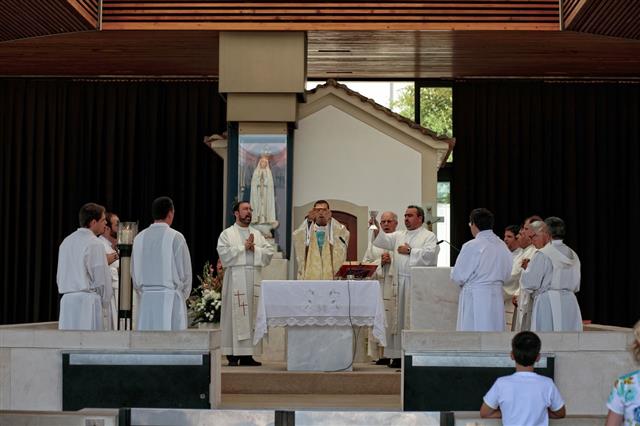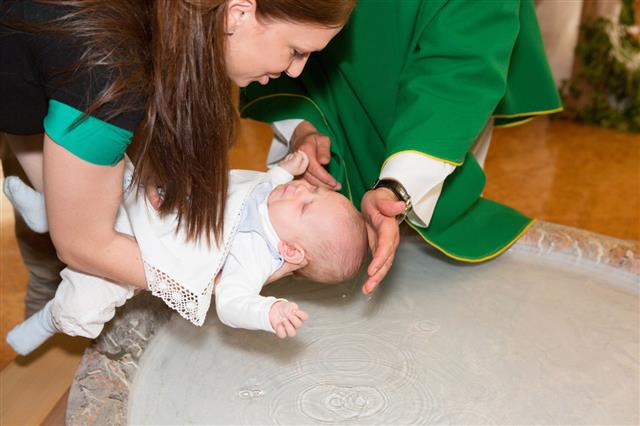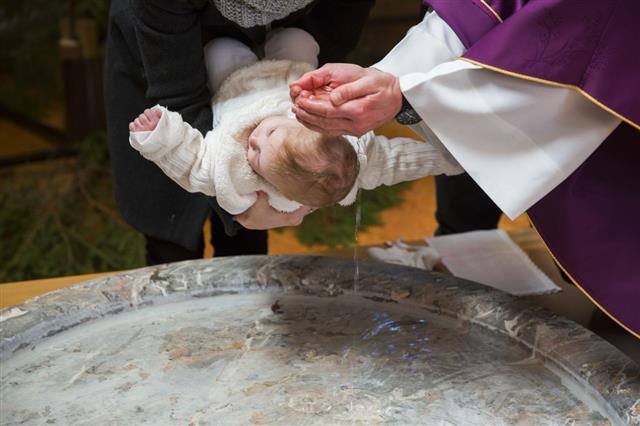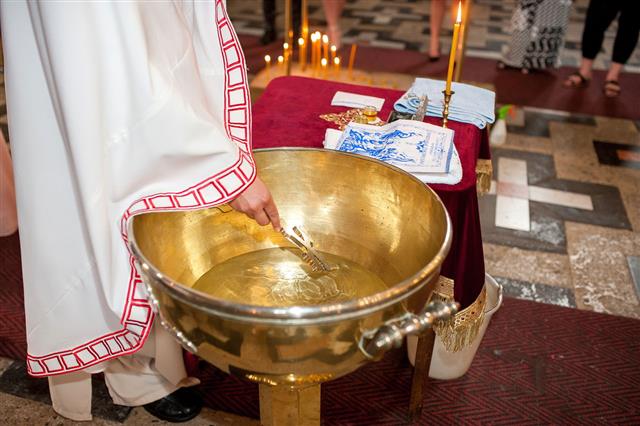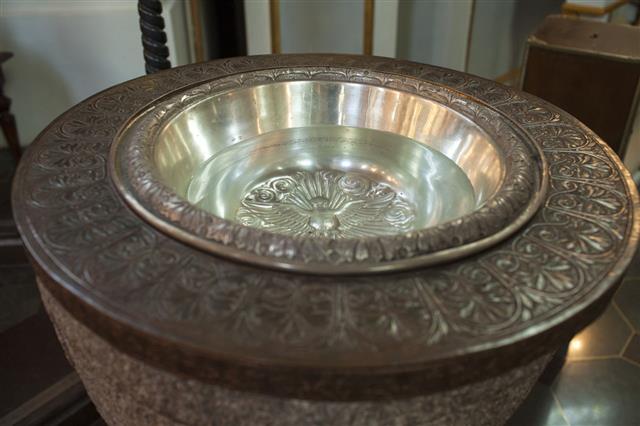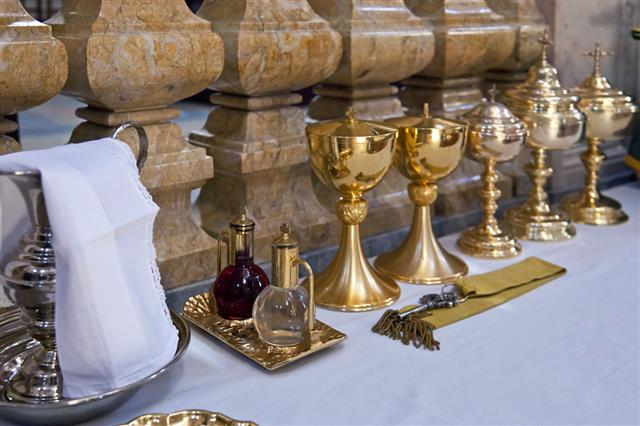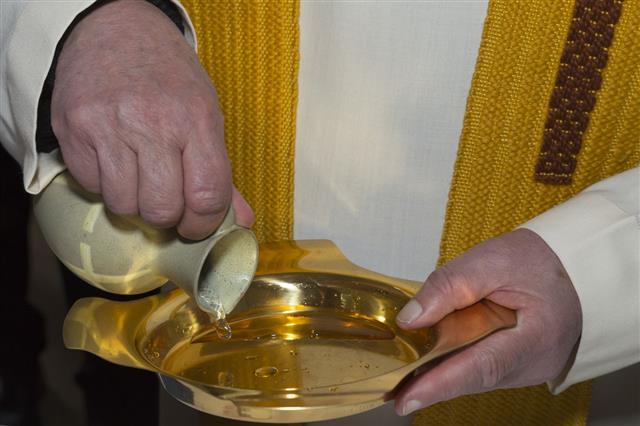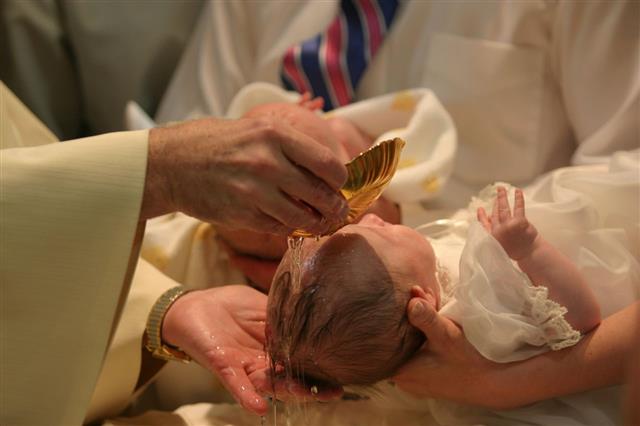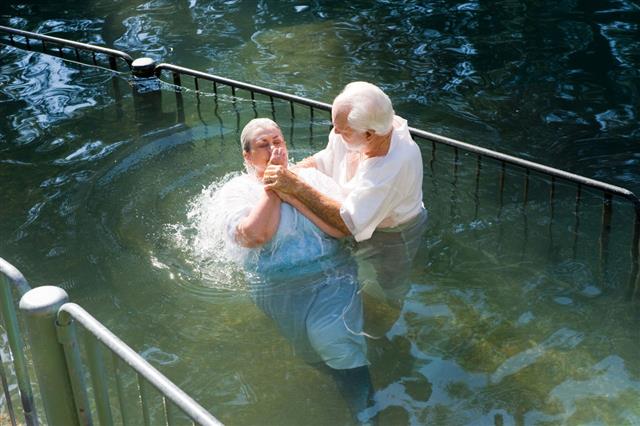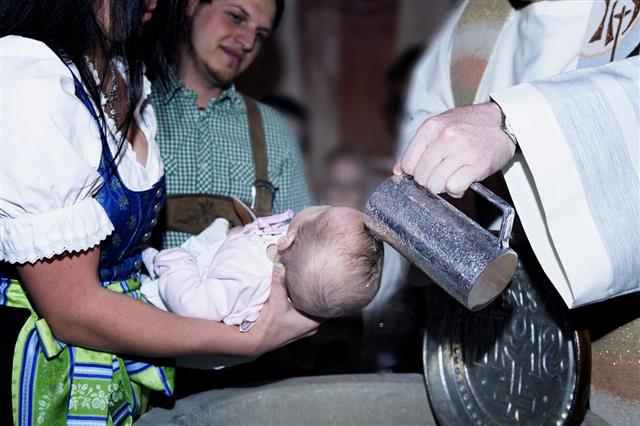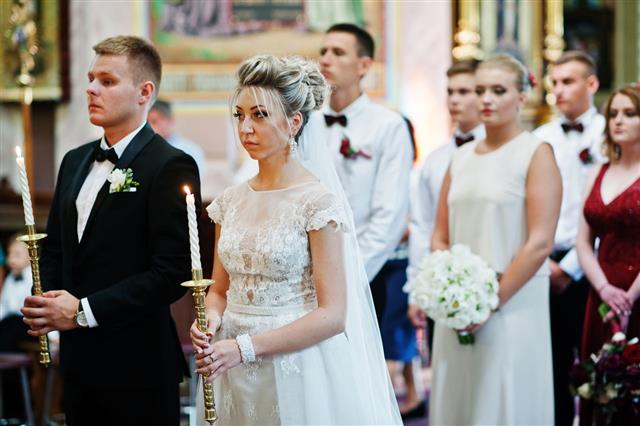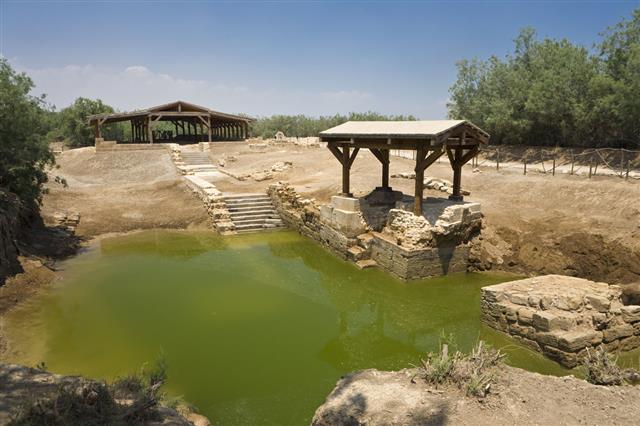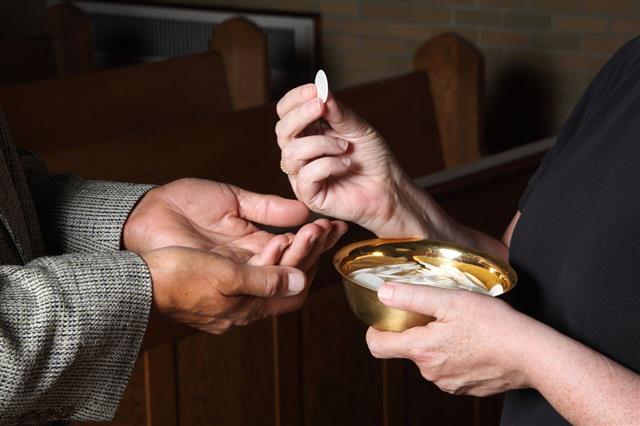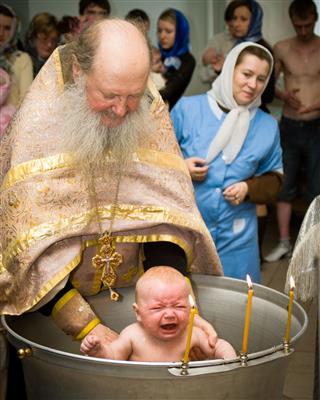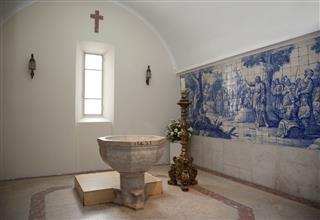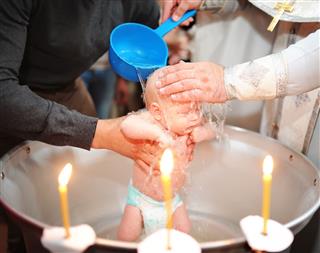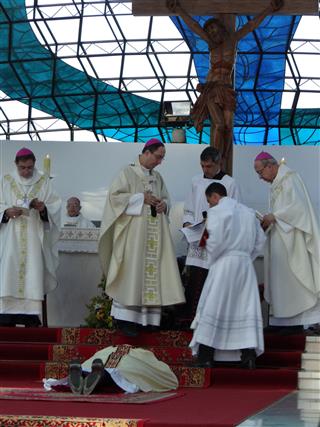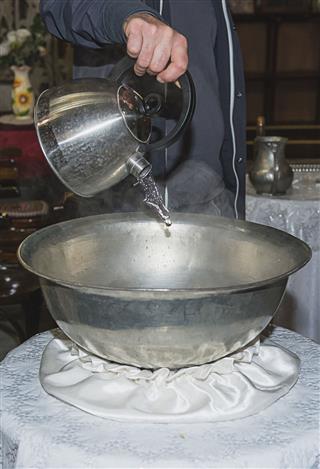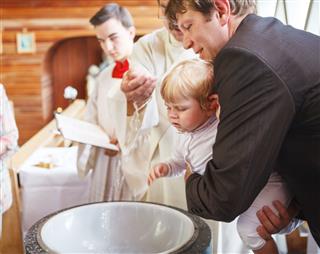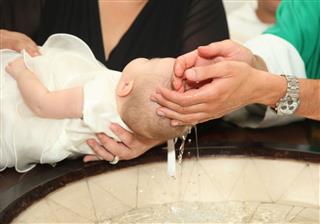
Sacraments are the way to receive God’s eternal grace, they are the means through which a believer can come closer to God’s love and experience his never-ending mercy and blessings throughout his/her lifetime. This SpiritualRay post will help you better understand the seven sacraments of the Catholic Church and their meanings.
Did You Know?
Theologians of the 12th century prepared 5 to 30 lists to define and clearly specify what rituals were sacraments. It was Peter Lombard who enumerated the seven sacraments that were central to the life of the medieval church in the West.
Source: Historical Dictionary of Catholicism
by William J. Collinge
Before we start explaining anything else, let us begin with the meaning of the word ‘Sacrament‘. It was introduced in AD 200 by Tertullian, and is derived from the Ecclesiastical Latin word ‘sacrāmentum’, sacer meaning holy. In Ancient Rome, this term was used to address a soldier’s oath of allegiance. Tertullian, an historical Christian writer, suggested that the sacraments are just as symbolic as a soldier’s oath to dedicate himself to a new life. The phrase ex opere operato, which means “from the work worked”, is usually used in context to the Holy sacraments, so as to substantiate the efficacy of these, in terms of both matter and form. This means that a sacrament is considered to be independent of the merits of the minister or the recipient.
The Catechism of the Catholic Church (CCC) states the following in reference to the seven sacraments: “The whole liturgical life of the Church revolves around the Eucharistic sacrifice and the sacraments. There are seven sacraments in the Church: Baptism, Confirmation or Chrismation, Eucharist, Penance, Anointing of the Sick, Holy Orders, and Matrimony.” The following section explains these sacraments and their meanings individually.
The Seven Catholic Sacraments and Their Significance
The sacraments listed below are crucial in the life of each and every Catholic. They were written and enacted in the documents of the Council of Trent (1545-1563). These are believed to be instituted by Jesus Christ himself, and thereby, entrusted to the Church so that all its members must live in Christ and partake in his grace and love. Each sacrament brings forth the moment where we can experience the divine touch of Jesus, where he fills our hearts with his purity, light, and mercy.
The seven sacraments are divided into three different sections. The first three sacraments―Baptism, Confirmation or Chrismation, and Eucharist―are known as the sacraments of initiation. Penance, and Anointing of the Sick come under the sacraments of healing, and lastly, Holy Orders, and Matrimony are categorized under the sacraments of service. These are explained as under.
BAPTISM
Go therefore and make disciples of all nations, baptizing them in the name of the Father and of the Son and of the Holy Spirit, teaching them to observe all that I have commanded you. And behold, I am with you always, to the end of the age.
― Matthew 28:19-20 (English Standard Version)
The first among the seven, and the opening gate of the grace and mercy that we would receive in our entire lifetime, Baptism usually takes place during infancy, although many nonbelievers who wish to accept Christianity later in their life, also undergo this sacrament as adults. We are born with the burden of the eternal sin, but it is only through baptism that our sins are washed away and we are renewed, ready to be a member of Christ’s Church.
This ceremony takes place by a priest, where the baby, or the candidate is taken next to the font, and water is poured on him/her, symbolizing of the sins being washed away. In case of emergency, even a layman can perform this rite, provided he or she uses the form of baptism, “In the name of the Father, and of the Son and of the Holy Spirit“.
CONFIRMATION
Now when the apostles at Jerusalem heard that Samaria had received the word of God, they sent to them Peter and John, who came down and prayed for them that they might receive the Holy Spirit, for he had not yet fallen on any of them, but they had only been baptized in the name of the Lord Jesus. Then they laid their hands on them and they received the Holy Spirit.
― Acts 8:14-17 (English Standard Version)
Also known as Chrismation, the next of the sacrament is symbolic of strengthening one’s acceptance in Christ by receiving the blessings of the Holy Spirit. A majority of believers are baptized as newborns, when they lack the ability to understand the significance of the rite for themselves. Confirmation takes place when the baptized person begins to understand what it means to be a member of the Catholic Church.
It seals the decision of being a Catholic, a decision that was taken by his/her parents and godparents during the baptismal ceremony. The ceremony is conducted by the bishop who lays his hands on the candidates and anoints them with Sacred Chrism (oil mixed with balsam). This enables them to receive the gifts of the Holy Spirit so that they may grow in its care and purity.
EUCHARIST
And He took a cup, and when He had given thanks He said, “Take this, and divide it among yourselves. For I tell you that from now on I will not drink of the fruit of the vine until the kingdom of God comes.” And He took bread, and when He had given thanks, He broke it and gave it to them, saying, “This is my body, which is given for you. Do this in remembrance of me.”
― Luke 22:17-19 (English Standard Version)
Also known as the Holy Communion, it is the last of the sacraments of initiation. It is reminiscent of Christ’s sacrifice for us, a ceremony which unifies us with Him publicly, thereby giving us the spiritual and mental understanding that makes us worthy to partake in the Lord’s Supper, to receive the Eucharist.
The ceremony is quite substantial, and the rites are conducted by the bishop. The aforementioned words are narrated in the mass, remembering Christ’s sacrifice, and the rightful candidates―who have been baptized and confirmed―are given the Holy Communion for the first time by the bishop, after in-depth learning sessions and understanding the significance of the body and blood of our Savior, Lord Jesus.
PENANCE
Therefore, confess your sins to one another and pray for one another, that you may be healed. The prayer of a righteous person has great power as it is working.
― James 5:16 (English Standard Version)
Also known as the Reconciliation, this is the first of the sacrament of healing. Those who are aware of their spiritual self would know that the burden of guilt, or being unable to forgive oneself or someone else, will never let you feel completely free, or to say, absolutely healed. It is written in the Bible, in the New Testament, John 1:8, “If we say we have no sin, we deceive ourselves, and the truth is not in us.”
Therefore, we must confess those sins that lay heavy on our heart and prevent us from uniting with our Father in heaven. This sacrament takes place with the priest, acting as the representative of God. He then, absolves the sin and grants a penance, to rectify or compensate for the sin confessed. This is so that the penitent receives satisfaction and peace from within. The priest is bounded by the seal of confession, wherein whatever has been discussed between the penitent and him remains concealed from the world.
ANOINTING OF THE SICK
Is anyone among you sick? Let him call for the elders of the church, and let them pray over him, anointing him with oil in the name of the Lord. And the prayer of faith will save the one who is sick, and the Lord will raise him up. And if he has committed sins, he will be forgiven.
― James 5:14 (English Standard Version)
Also known as the Extreme Unction, this is the last of the sacrament of healing. This sacrament is confined to those who are critically sick, and who seek the blessing of Jesus to be healed through the forgiveness of sins.
This sacrament is conducted by a priest who anoints the person with the blessed oil. He anoints usually on the forehead and hands; however, the place of anointment may change depending upon the nature of sickness. For example, if the illness is related to the sight, then the eyes are anointed. The usage of oil was also administered by the disciples of Christ to heal the sick and cast out demons.
HOLY ORDERS
Do not neglect the gift you have, which was given you by prophecy when the council of elders laid their hands on you.
― Timothy 4:14 (English Standard Version)
Also known as the Ordination, this is the first of the sacrament of service. Although all those who are believers in Christ share the responsibility to serve others in need, there are some who are called by the Almighty to be ordained and fully commit themselves to the service of others under the authority of Christ.
Holy Orders include men that are ordained as priests, deacons, or bishops. The Church needs to be sure if the interested candidate has really got a call from God for this sacrament. Only after careful evaluation is this ritual performed on the person. The bishop is the only person allowed to ordain the person and bless him so that he is able to become a living example of Christ. The bishop lays his hands and anoints the person with oil.
MATRIMONY
Therefore a man shall leave his father and his mother and hold fast to his wife, and they shall become one flesh.
― Genesis 2:22-24 (English Standard Version)
The last of the sacraments is the matrimony, which in simple words, means marriage. When two baptized people decide to be united in this bond, with their due consent and happiness, they pledge vows to each other in front of the priest, and most importantly, in front of God. The purpose of undergoing this sacrament is not only legal, but spiritual. For there is no earthly bond as important as this.
This sacrament is a responsibility that a man and woman has towards each other and for their children. They should grow close in Christ’s love and bring up a family that thrives under God’s care. This is an indissoluble Holy contract (only void in case of adultery), and the exchange of rings is a sign of its commencement.
These seven sacraments represent the indispensable need for God’s grace in our lives. They are not only an open acceptance of the Lord’s ways, but also a personal and spiritual connection with Him, that is unlikely to be experienced otherwise. These sacraments teach us to live and abide by the word of God, to live and love like His only son, Jesus Christ. The first sacrament is necessary to be free from sins; the second, to be affirmed in our decision to follow Him; the third sacrament enables us to partake in the Lord’s Supper; the fourth gives us the way to forgive and be forgiven; the fifth gives us the way to be free from sickness; the sixth enables us to be a part of the greater cause of service, if we are called for it; and lastly, the seventh sacrament teaches us to be faithful and committed to the lifelong friend, companion, mate, the Lord has chosen for us.
